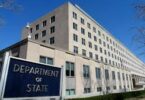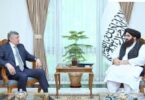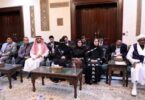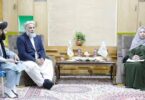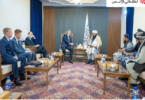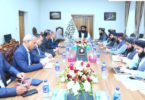KABUL (Tolo News): Dozens of Afghan media officials from across the country, especially those from radio stations, gathered in Kabul and shared their concerns over financial problems and restrictions in accessing information from Islamic Emirate officials.
The media officials said economic problems, the restrictions in accessing information, and restrictions against women reporters are the main challenges they are facing right now.
According to the local media officials, in the past four months, many radio stations have ceased operating in different provinces of the country because of the mentioned problems. “Our income is low, but our expenditures are high,” said Zahid Engar, head of Radio Sulh-e-Paygham. The media officials also said in some provinces female reporters do not appear on duty because of the restrictions. “In Takhar province we are facing financial challenges and we also cannot have female reporters at our outlet,” said Kamila Sahar, owner of Rayhan Radio and TV station in Takhar province.
“In Farah province, reporters are not permitted to visit the security department (officials) or the provincial governor unless they have been granted permission by the information and culture department,” said Ibrahim Mohammadi, an official of a local radio station in Farah.
The media professionals and officials at the end of their gathering read out a statement listing their problems and demands and called on the Islamic Emirate to address them. “In some provinces of the country, the authorities have imposed restrictions on the media. We urge the Islamic Emirate officials to take the necessary steps in removing the restrictions,” said Abdul Basir Haqjo, an official of Amu Radio in Badakhshan province.
Meanwhile, the Islamic Emirate officials present at the meeting said they will address media challenges. However, they emphasized that the media should consider national and Islamic values while reporting. “The media should reflect the voice of the people in a way that the positive gains of the government and the people should be preserved,” said Abdul Wahid, head of the strategic relations department of the Interior Ministry. “We will do what we can to improve the situation of reporters and media,” said Jamal Nasir Farahmand, deputy media director for the Prime Minister’s office.

